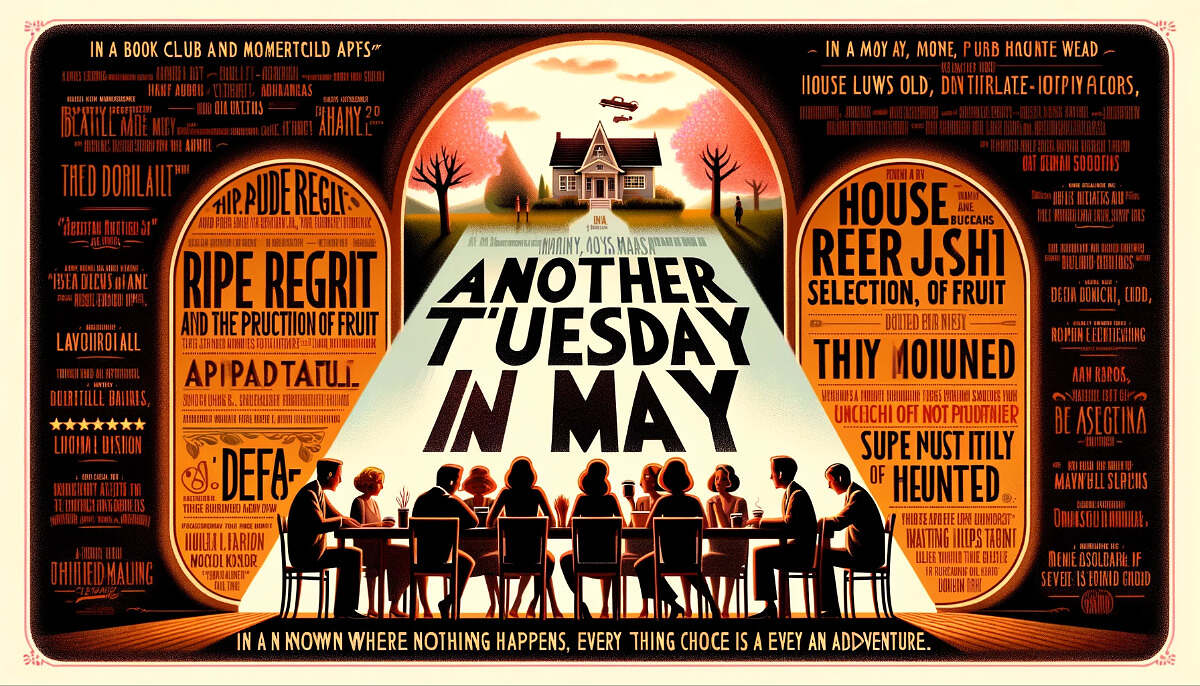Riverside Springs found itself at the center of Hollywood’s latest film project, “Another Tuesday in May.” Citizens, initially thrilled at the prospect of their daily dramas being immortalized on screen, were left underwhelmed at discovering the movie’s startlingly basic plot. As more details about the film emerged, excitement waned. Dreams of red carpets and glamour quickly dissipated as the unremarkable narrative painted a picture far removed from the blockbuster spectacle many were eager for.
The film, directed by avant-garde filmmaker Ima Artiste, zooms in on the Riverside Springs’ local book club’s debate over their next read. The plot laboriously explores the club’s choice between three contentious options: “Ripe Regret and the Premature Selection of Fruit,” “Houses That Were Just Old, Not Haunted,” and “Decaf: A Journey.” Townsfolk who had anticipated a dramatized version of unchecked greed or scandalous exposé of city politics were met with a story that purposefully avoids any hint of excitement.
“I thought they’d uncover the secret lives of tunnel dwellers or the mysterious case of the missing neighborhood,” sighed drama enthusiast, Betty Gossip. “But instead, it’s just folks bickering over books, and not particularly well at that. I mean, strange things happen in this town all the time, like the Toxic Jello Salad Incident or the Night the Streetlights Sang Broadway. Yet, the film sidesteps all that as if it’s afraid of controversy. What happened to cinema’s artistic boldness of yesteryear?”

Despite the film’s substantial $200 million budget, Artiste opted for a cast of unknown actors whose defining traits are their remarkable resemblance to the unremarkable townsfolk. This choice dispelled hope for media frenzy or paparazzi invasions, further embedding the project in the realms of the uneventful.
Yet controversy arose Artiste was revealed to be on the board of directors for Dial Down, a startup dedicated to curing phone addiction by recalibrating attention spans through forced consumption of life’s most monotonous aspects. “This film is my magnum opus in the fight against screen time. If you discover new beauty and insight in your third rewatch of ‘Another Tuesday in May,’ you’re effectively cured,” Artiste proclaimed unabashedly.
“I mean, strange things happen in this town all the time, like the Toxic Jello Salad Incident or the Night the Streetlights Sang Broadway. Yet, the film sidesteps all that as if it’s afraid of controversy. What happened to cinema’s artistic boldness of yesteryear?”
Still, the local economy has seen a boom, albeit not in the lavishness Hollywood is known for. Upticks in sales at thrift boutiques, dinners at forgotten restaurants, and “Out of Stock” signs at supply stores have all been reported in recent weeks. These establishments, so generic they could be franchised in any town USA, have become the unintended beneficiaries of Hollywood’s influence, casting Riverside Springs in a paradoxically vibrant success of its own mundanity.
Yet, despite the film’s portrayal, citizens remain defiant. “Sure, we might not have the drama of our neighbors, but we had a dog that barked the alphabet. Beat that, Lakeview Heights!” declared librarian Ted Boredom, summing up the town’s sentiment. Residents are rallying around their unique brand of normalcy, insisting that even in the most unremarkable of lives, there are plenty of stories worth telling—just maybe not the one Hollywood chose to tell.


